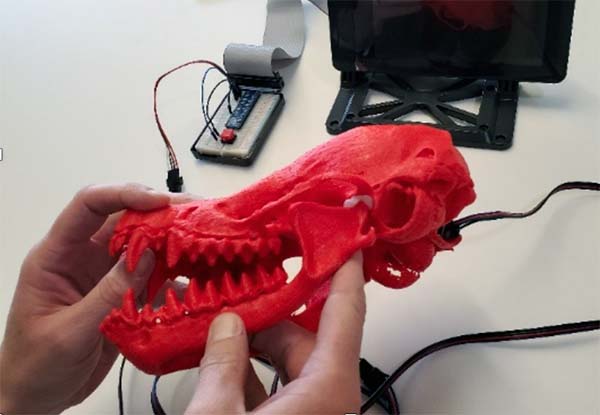Advanced Instructional Systems and Technologies Laboratory
Technology is at the forefront of modern training and education — most of us are familiar with webinars, online tutorials, and video trainings. While these technologies have made it easier to reach large numbers of people, they also can have significant drawbacks.

Eric Poitras
If you have ever taken on online training, you might be familiar with a few of them: boredom, frustration, confusion, and materials that seem irrelevant to your needs and goals. But how can the need for large-scale, digitized learning systems be balanced with the need of individuals to receive training that is customized to their particular needs and preferences? The College of Education's Advanced Instruction Systems and Technologies (ASSIST) Lab seeks to bridge this critical gap through the development of adaptive systems in a variety of domains.
The ASSIST lab focuses on developing technology-rich learning environments that analyze your personal learning and adapt to the way in which specific individuals learn. As you use an online learning system — clicking, typing, scrolling, selecting menus, etc. — the system logs these fine-grained behaviors (and their outcomes) to model how you learn.
It then uses this model to deliver personalized content, recommendations, and instructional activities that are best suited to your unique needs. The result is the opposite of the one-size-fits-all trainings you may have seen — this training is specialized to you and you alone. Even better, these technologies adapt to your changing needs in real time.
As you continue to learn and interact, the system constantly updates to reflect what you need at that moment. According to Eric Poitras, Assistant Professor in Educational Psychology, “The belief that everyone should learn the same things at the same time is problematic given the particular interests, difficulties and differences among learners.” The systems that Poitras develops tackle customized learning and personal support in highly varied topic areas.

Examples
Smart Virtual and Tangible Models of Learning
Museums curate large scientific collections that include many objects with inherent value for STEM (Science, Technology, Engineering and Math) learning. However, these objects often are too rare, fragile or dangerous to be handled directly by students. Moreover, students often fail to examine and analyze the specific features of scientific objects that would support meaningful inferences and the development of evidence-based arguments.
Using 3-D printing, ASSIST researchers are building sensor-enabled 3D objects that allow an instructional system to assess how students are interacting with 3D models in real-time. The goal is to provide optimal, just-in-time prompts that move student to deeper thinking and to provide educators with instructional dashboards that allow them to see when students need help or are ready to move on. These systems have the potential to greatly enhance student engagement in STEM learning through object-based learning and science inquiry with existing scientific collections.
 Interviews with Virtual Agents
Interviews with Virtual Agents
Mental health counselors often work with clients in a private setting that does not allow for constructive and detailed feedback from mentors. Thus, beginning counselors may have limited opportunities to practice their skills in low-stakes environments and to receive highly contextualized training based on their individual needs. Using advances in natural language processing and machine learning, the ASSIST lab has found that it can detect, track and foster skills critical to therapeutic treatment. The result is a contextualized, adaptive training system in which counselors can received customized training and practice.
ASSIST lab research has found substantial reductions in counselor training time are realized when using this type of adaptive training with simulated dialogue from virtual therapists and clients.
Network-Based, Self-Improving Tutoring Systems
Pre-service teachers face a daunting task of learning to create student instruction that reflects accurate content knowledge at the same time that it incorporates available online materials and technologies. Training pre-service teachers to successfully integrate all of these areas of knowledge is a daunting task, especially since individual strengths and weaknesses are highly varied across content, technology, and pedagogy.
The ASSIST lab is exploring adaptive systems that use the collective behaviors of a broader community of educators to inform instructional decision making over time. Based on individual goals, the system can suggest resources, materials, and approaches that have worked well for other teachers (with similar profiles and actions) when planning their lessons. The eventual goal is a system that can optimize the delivery of educational content to support every teacher in developing high-quality, technology-integrated instruction for their students.
Related information: http://www.assistattheu.com/

